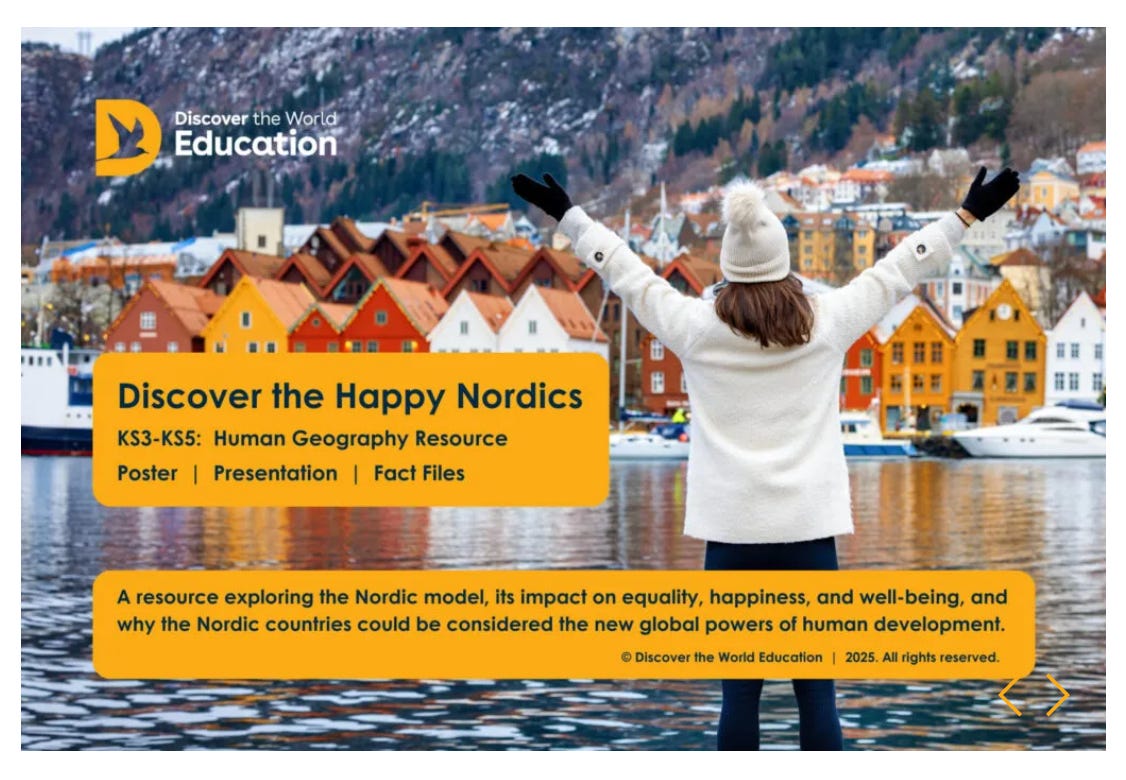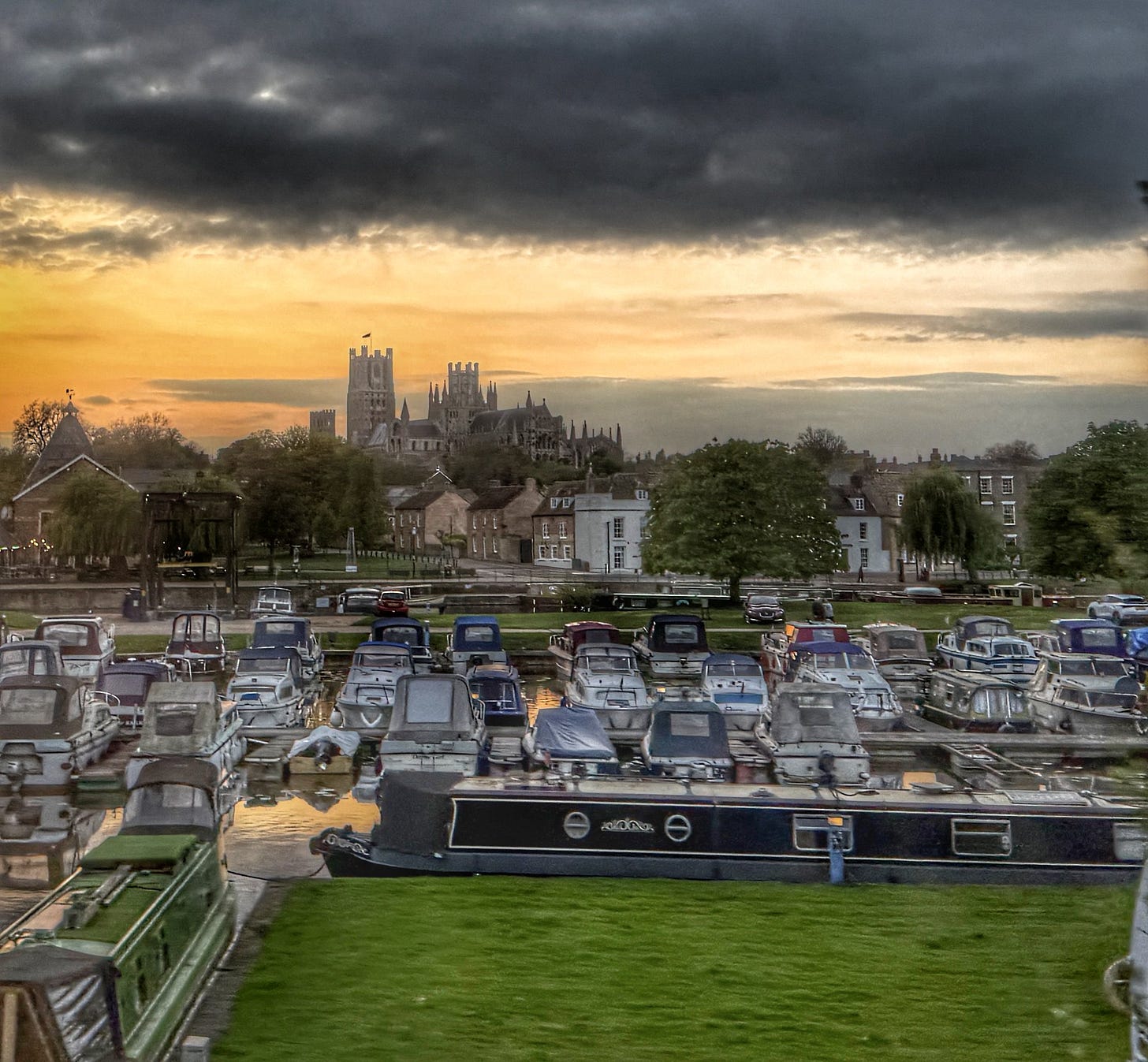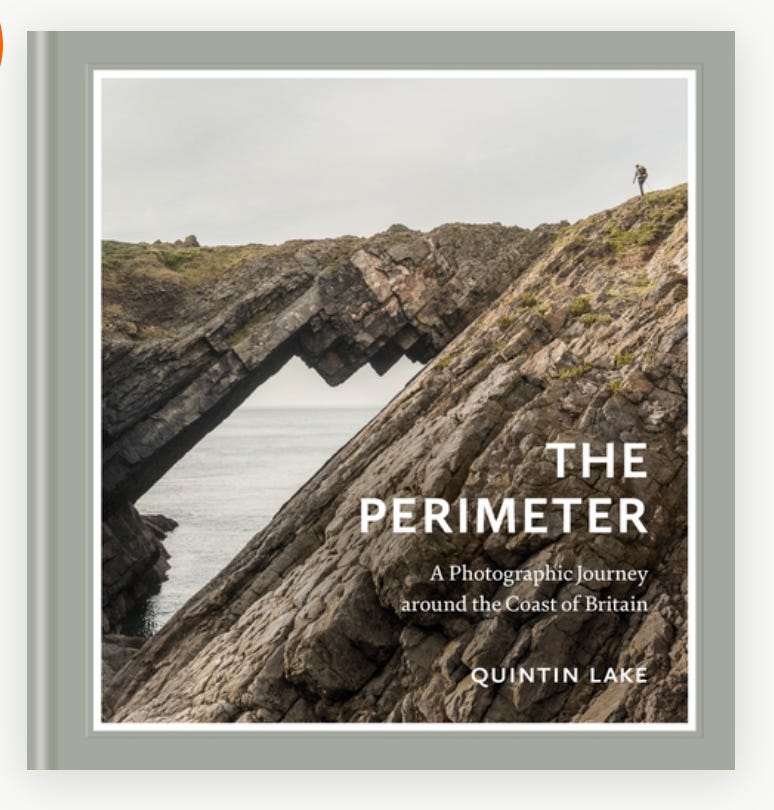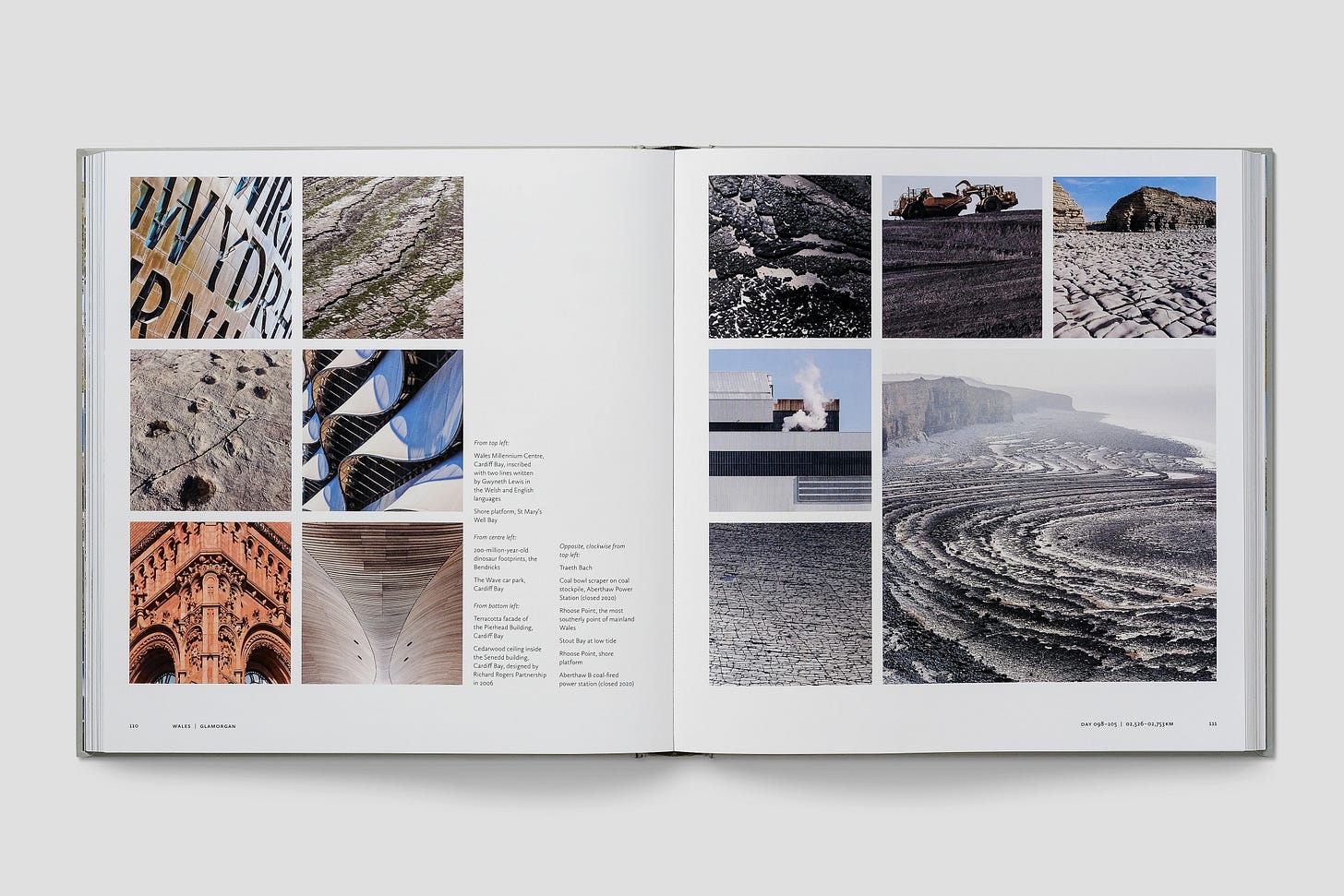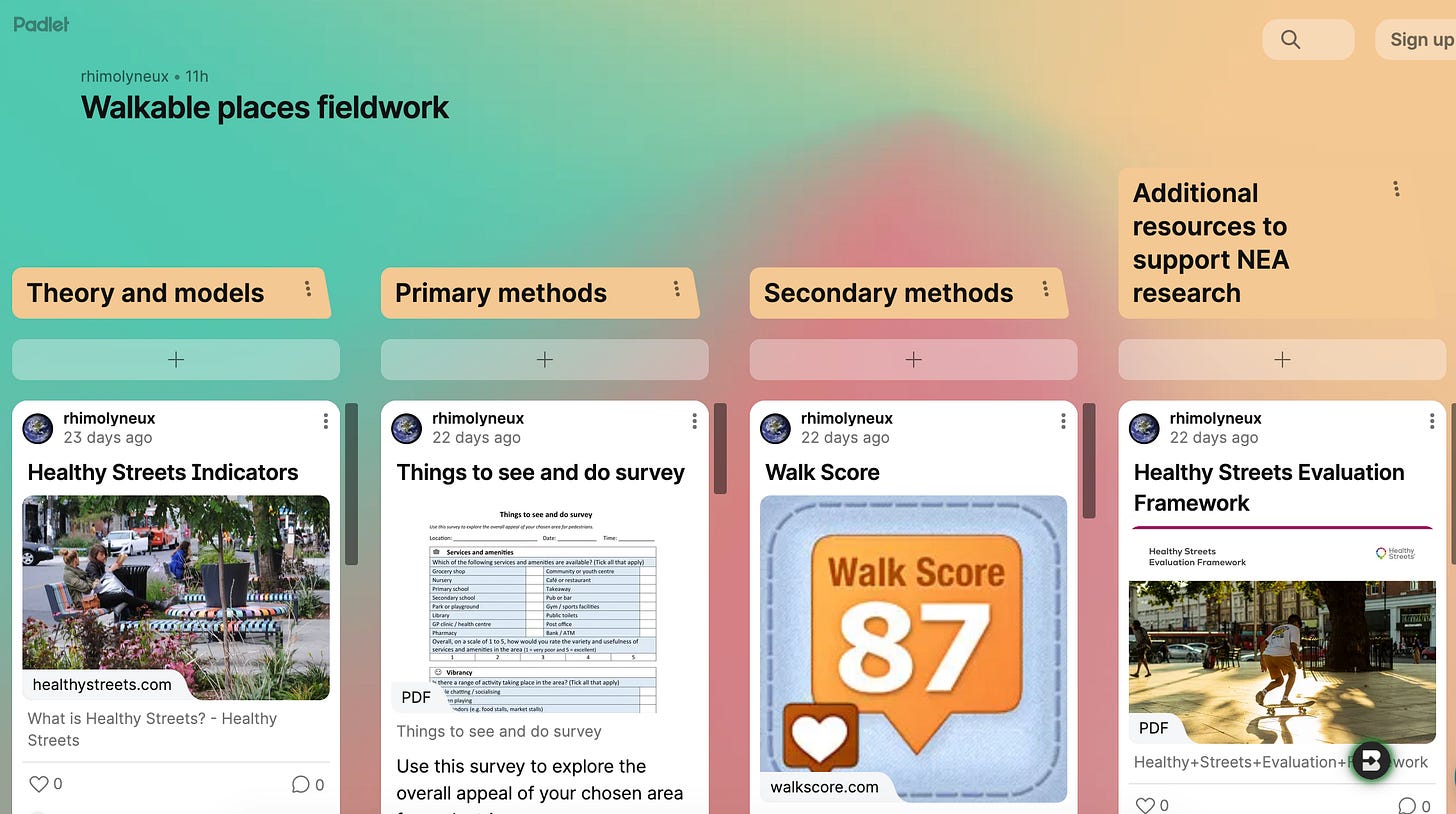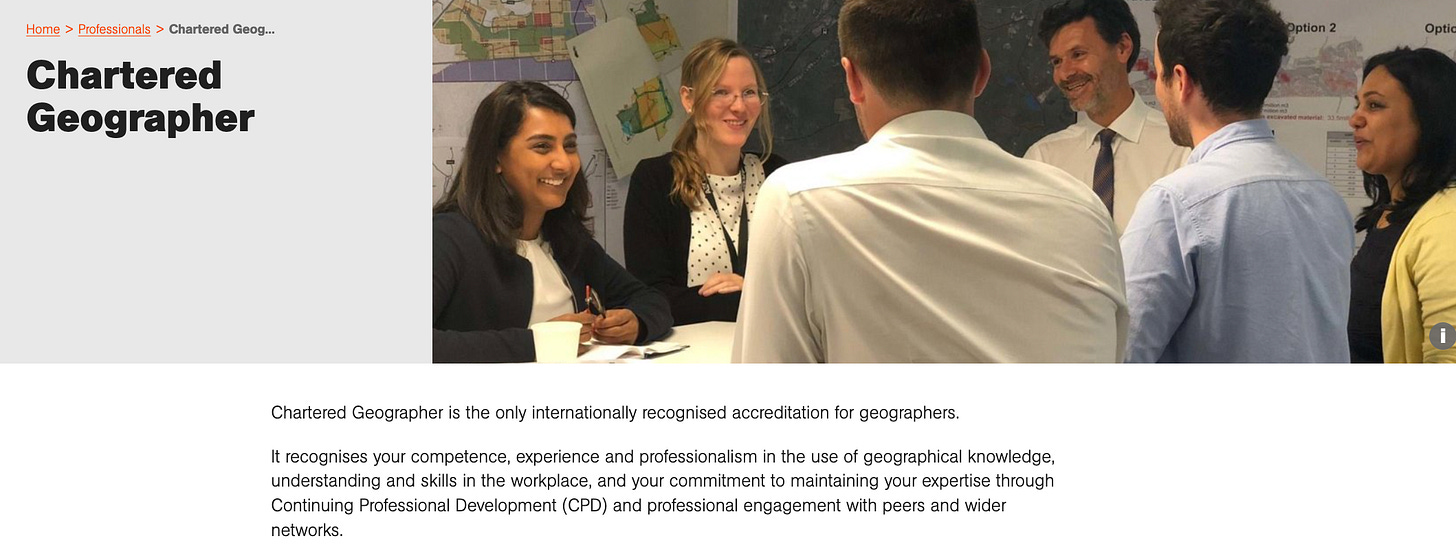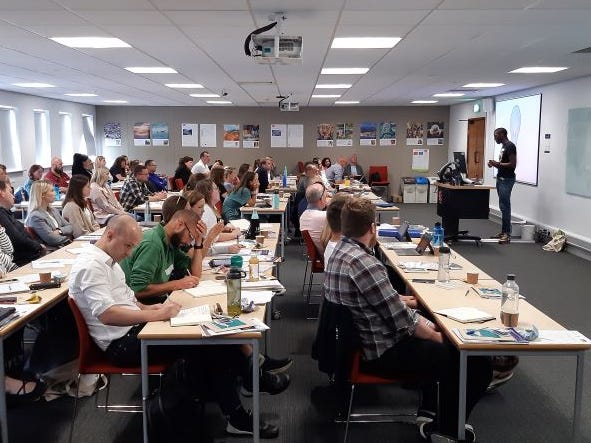Welcome to the seventeenth weekly newsletter providing a summary of key posts on the LivingGeography blog.
Each newsletter will usually include a number of sections:
a digest of posts from the LivingGeography blog (and other blogs)
any important geographical news
an update on any personal projects
details of books that I am reading, or cultural experiences
a couple of nice images taken this week
events that you might be interested in
This week saw the first week of the Summer term: quite a short term and now that my school has been inspected, a lot of pressure is off, so hopefully it will be productive. I headed over to Dereham today to pick up some new specs and sunglasses.
Blog posts this week included:
Cities moving - a visualisation of how people travel into and out of cities around the world - thanks to Bob Lang for the tipoff. Compare your city with others around the globe.
Megawatt - a resource package exploring energy for schools including materials and workshops and downloads. They were one of the exhibitors at the GA Conference too.
A new free resource from Karen Corfield of Discover the World explores the Happy Nordics, and what makes this part of the world the ‘happiest’ and amongst the most long-lived of all countries. A poster will be delivered to your school and the rest can be downloaded from the website.
Something on Careers in Geography ahead of the Festival of Geography.
Details on Fischer Farms: a local vertical farm.
Don’t forget my GCSE Natural History blog - we are still waiting for the next stage of the development of a possible new specification - this is contingent on the outcome of the CAR (Curriculum & Assessment Review) which will move into its next phase soon. I’ve continued to add some posts ahead of possible resource development work.
The trailer for a new David Attenborough film: Ocean.
A blog post on the GA Blog from Rayburn Tours’ Chairman John Boyden. I’m very pleased to have been linked with Rayburn, and working with them in Iceland, for five years now. They are celebrating their 60th birthday this year.
Some posts on the ethics of AI.
News
Last week, I went to Cambridge to hear Samantha Harvey talk about her Booker Prize winning book ‘Orbital’, which I based a scheme of work on for Year 6 students. This was part of the Cambridge Literary Festival.
Description:
This beautiful uplifting book follows a team of astronauts in the International Space Station as they circle the Earth in all its spectacular beauty and begin to ask, ‘What is life without Earth? What is Earth without humanity?’
A team of astronauts in the International Space Station collect meteorological data, conduct scientific experiments and test the limits of the human body. But mostly they observe. Together they watch their silent blue planet, circling it sixteen times, spinning past continents and cycling through seasons, taking in glaciers and deserts, the peaks of mountains and the swells of oceans. Endless shows of spectacular beauty witnessed in a single day.
The fragility of human life fills their conversations, their fears, their dreams. So far from Earth, they have never felt more part – or protective – of it. They begin to ask, what is life without Earth? What is Earth without humanity?
If you haven’t read the book then you need to. I enjoyed what Samantha had to say about the process of writing the book.
If you are an RGS Fellow, it’s time to vote in the Council and Committee Elections. One of the decisions is who should join the Education Committee that I chair as a Councillor. We have some important work to do in the next few years. You can vote for one of three very fine people who have shared their statements on why they believe they are the right person for the job. You have a month or so to do that. I will be delighted with whoever is selected.
The results will be announced in June. See more details of that later in this Substack.
Projects
I’ve continued to work on some Oak KS3 reviewing - the launch of some of these materials for KS3 is getting closer, and I also started on my latest writing project with the templates arriving so I can copy in what I’ve written so far. I have lots to write and deadlines are short (as always).
Books
I’ve been reading ‘To the Eel Island’ by Charles Moseley - a readable and personal history / exploration of the city of Ely where I work, alongside ‘The North Pole’ by Erling Kagge. Also lots of dipping into other books while I write, including books about Islands, while I prepare something to launch the Young Geographer of the Year competition. Don’t forget the Rex Walford Award if you are an ECT. It would be great to be handing you the prize at the end of the year.
Images
Babylon, Riverside and Ely Cathedral from the King’s Cross-King’s Lynn train - shared on Flickr under CC license.
Infrastructure - pictures of this can be hard to find. This is a new cable which is being laid under the pavement outside my house. The faulty cable actually runs under our garden… and they didn’t want to dig that up… It’s now 6 days since they started the work. Shared on Flickr under CC license.
Events
I was amazed to read in an email that it’s now ten years since Quintin Lake set off on his photographic journey around the coastline of Britain. I almost met up with him several times but COVID and schedules got in the way. It’s now been turned into a book which comes out in May.
The book is a visual celebration of all Britain has to offer - from the charming seaside village of Staithes in Yorkshire, to the beautiful desolation of Scotland's Knoydart Peninsula, and from the desert landscape of Dungeness in Kent to the dramatic contrast between industry and nature along the Welsh coast path.
The Perimeter features the 1,300 most potent images from the 179,222 photos I took during the 11,000 km hike. These photographs are complemented by stories from my diary entries and research, highlighting the unique characteristics of each of the 54 historic counties I travelled through.
There are a number of events where the book is being showcased.
THE PERIMETER: BOOK TOUR
Bath Festival 20th May, 1pm 20th May BOOK HERE
Book Launch: Stanfords, London, 21st May, 7pm BOOK HERE
Festival of Outdoor Photography, Royal Geographical Society, 10am 31st May BOOK HERE 40% off full price tickets with discount code: QL40
Book Launch: Hatchards, Cheltenham 6.30 PM 12th June 6.30 PM BOOK HERE
Borders Book Festival, Melrose, Scotland 3.45pm, 14th June BOOK HERE
A few bits from the GA Conference 2025
A Flickr album of official photos is here.
Rewatch the GAConf25 Keynote lectures
Public lecture on The Whispers of Rock: Stories from the Earth by Dr Anjana Khatwa
Presidential Lecture on Connected Geographies by Hina Robinson, GA President 2024-25
Keynote lecture on Nairobi National Park – a case study of connected geographies by Paras Chandaria
Keynote lecture on Meaning Making in the Primary Geography Curriculum by Rebecca Leek
Some reflections on the conference experience from Emma Espley and David Preece.
Rachel Hawke shared how she makes departmental CPD more effective.
Rhiannon Molyneux shared her presentation on Walkability fieldwork from the GA Conference on her LinkedIn page:
Last week I attended the Geographical Association Conference in Oxford – a brilliant day full of fresh ideas and inspiring conversations. I was also excited to present for the first time at the conference Teach Meet. I shared ideas about designing hyper-local fieldwork to investigate walkability, and why this is such an important and topical issue for students to explore.
I've shared my slides below, along with a link to a Padlet of useful websites and resources for anyone interested in finding out more.
https://padlet.com/rhimolyneux/walkable-places-fieldwork-njvug7qpka0jgzbg
A job has come up working for Teach First as a Geography Subject Lead on a year’s fixed term contract. David Preece, who coordinates their Geography work shared the information on his LinkedIn account.
Since 2022, Teach First has run our unique two year Initial Teacher Education programme led by a Head of Geography (me!), and supported by expert Subject Development Leads. We’re one of the largest training programmes in the country, and we’re recruiting to add a fourth to the team! Our Geography team embraces a supportive team culture. We collaborate to build a great curriculum that engages with subject associations and brilliant subject speakers, offers great training, and is outward looking. We believe that helping teachers to become excellent subject specialists is one of the most powerful impacts for young people.
You definitely don’t need prior experience of the Teach First programme or to have direct knowledge or lived experience of what we do. But you’ll probably be confident with the challenges of disadvantaged communities, or teacher coaching using tools like IRIS or Steplab. You might have done further qualifications, or have previously been a HoD, mentor or training lead.
We come together to teach the groups in person – this is probably termly on average, usually in London or Leeds. These are the highlights of the term for us and our colleagues – and we regularly meet wonderful Geographers as part of that experience. Most of your work will be wfh with a portfolio of first and second year trainees. You’ll coach and support their subject development. You might be watching IRIS clips of their lessons, meeting them, or supporting specific challenges of topic knowledge or planning. There isn’t a “one size fits all” approach, and so you’ll be capable of helping with a range of geographical experiences in lots of different school contexts.
We work in a flexible and mostly hybrid/remote charity setting. You’ll work mostly from home, from anywhere in England, and we trust you to do the job in the right way. In an ideal world, we’d love to be able to get you to start as soon as possible, but it’s likely that we’ll be working with you for a September start. If you’re interested, please apply – or let me know if you have questions. As the Head of Geography, I can’t answer every question that people might have – but I’ll do my best to be honest and open about what we know and what we can do. Looking forward to some great candidates applying!
A Primary Geography and History event is being organised by the RGS. It’s a webinar exploring climate education. Details are here. It takes place online in July, and is presented in association with the Historical Association.
You can still get a ticket for the Festival of Geography, hosted by the RGS. This takes place on the 16th of June. I’ve been working on my presentation.
You may also want to come along to the RGS AGM, the Awards or the Annual Reception. These all take place on the 2nd of June. You can see details of, and book for, all upcoming events at the RGS here. Looking forward to congratulating this year’s winners. I was fortunate to receive the RGS OS Award for Excellence as long ago as 2008.
As we move towards the end of another academic year (I know there’s a fair way to go yet), perhaps now is the time for those of you who have been teaching for about six years or more to consider applying to become a Chartered Geographer (Teacher). I’ve had this accreditation since 2007. Details are here.
Chartered Geographer is the only internationally recognised accreditation for geographers.
It recognises your competence, experience and professionalism in the use of geographical knowledge, understanding and skills in the workplace, and your commitment to maintaining your expertise through Continuing Professional Development (CPD) and professional engagement with peers and wider networks.
Booking is also now open for the SW Geography Conference.
SW Geography Conference (Monday 16 June) at UWE, Bristol.
This annual FREE ENTRY CPD event features a range of inspiring lectures and engaging workshops. Catch up with colleagues, share experiences and browse the exhibition stands.
Register as soon as possible – places are limited – at https://uwe.eu.qualtrics.com/jfe/form/SV_cvkoZvhqIoHO0T4 .
Any queries, please contact Simon Ross (rosstrout@aol.com).
Confirmed lectures and workshops:
Jon Cannell (GA) 'Green Skills'
Dr Tim Scott (University of Plymouth) 'Atolls and climate change'
Professor Lisa Mol (University of Bristol) 'Heritage destruction: geographical perspectives'
Dr Rachael Squire (Royal Holloway University of London) 'I can see the sea'
Karen Corfield (DtW Education) 'The new era of tectonic activity in Iceland'
Rachel Shepherd-Jones (AQA)
Amy Case (Flooglebinder) 'Seeing places anew: perception, experience and re-framing geographical understanding'
Robyn Landy (FSC) 'Practical ideas to increase fieldwork provision at KS3'
Eleanor Pinches (Royal Meteorological Society) 'Climate change misconceptions: unravelling fact from fiction'
Andy Owen (Author and assessment consultant 'Spaces for everyone'
Martin Williams (Belmont Estate) 'Re-wilding and re-wiggling nature and ourselves at the Belmont Estate'
Katie Hall (Schools Manager, ESRI UK) 'Teach with GIS and the National Festival of Fieldwork'
Peter Vujakovic and Emma Espley 'Students as landscape detectives'






